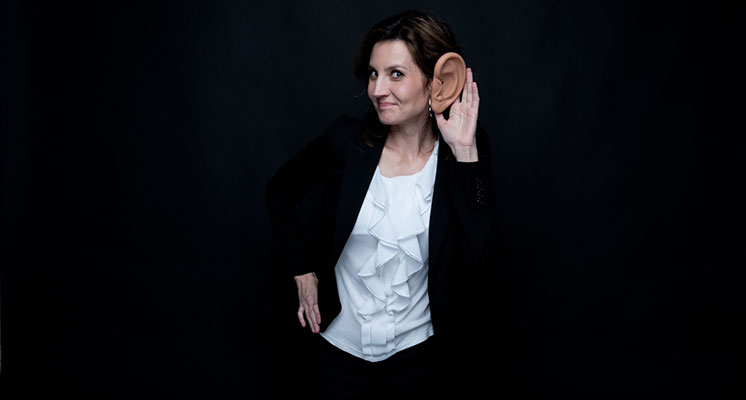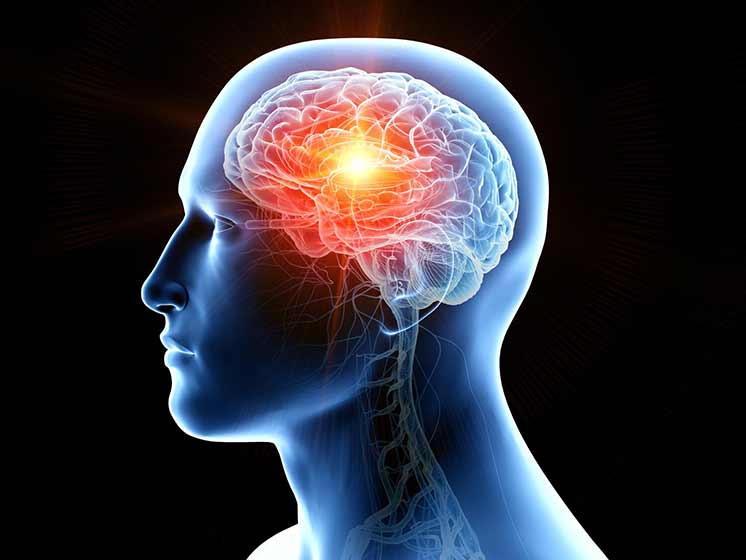During these times we must take care of our emotional health. Strength training provides similar improvements in depression as anti-depressant medications. Currently, it is not known if this is because people feel better when they are stronger or if strength training produces a helpful biochemical change to the brain. It is most likely a combination of the two. Strength training helps to ease stress and anxiety by reducing stress, it helps sharpen brain-power and increasing self-esteem. Lifting your mood can help relieve depression, boost your energy level helping you cope better with whatever comes your way in the run of a day.
Simple Sweet Potato Soup
1 Tbsp olive oil; 1 white onion diced; 3 cloves minced garlic; 2 Tbsp grated ginger; 2 pounds sweet potatoes peeled, cut into small pieces; 4 cups vegetable broth; 1/2 tsp salt; 1/4 tsp pepper; 1 cup shredded cheddar cheese; 2 Tbsp sliced green onions or chives. Place a large pot on the stove over medium high heat. Add in olive oil and onion and sauté until tender, about 7 min. Add in garlic and ginger and sauté 1 min more. Add in sweet potatoes and season with salt and pepper. Pour in vegetable broth and bring to a boil over high heat. Once boiling, reduce heat and simmer until tender. Transfer soup to blender and blend until smooth. Return to a pot over low heat and add in cheese. Serve topped with green onions or chives.
10 Interesting Ear Facts
Ears allow us to hear, but what else makes them so special?
Let’s find out!
1. Without your ears, you would lose your balance
Inside your inner ear lies a fascinating maze-like structure known as the vestibular system. Located here are three canals with fluid and small hair cells that detect the rotational movement of your head, whether that be up and down, side to side, or tilting. Each semi-circle canal is located at a different angle so your brain can better judge where your head is moving. They are each responsible for a specific direction of head movement.
Information coming from the vestibular system is processed in the brain and then sent to other organs that need this information, such as the eyes and muscles. This allows us to remain balanced and know what position our body is in. In some situations, (i.e., on a boat,) different sensory organs, such as the eyes, send contradictory messages to the brain. This is what can then cause us to feel unwell, dizzy, or nauseous.1
2. Your ears keep “growing” with age

Legend has it that our ears and nose are the only parts of our body that continue growing throughout our lives. They do indeed get larger, but it’s not because they’re literally growing. It’s most likely a combination of natural aging and gravity doing the work.2
As we age, our ears appear to be getting bigger but it’s because the cartilage in our ears is slowly breaking down, and gravity makes them elongate overtime.
3. Ears are self-cleaning
Earwax gets a bad rap.
But the truth is, it’s a completely natural (and essential) part of our ears.
Normal earwax production is a sign that your ears are doing a great job at cleaning themselves. This self-cleaning ability is also a win-win because the wax helps keep the ears moisturized and protected.
4. Ears never sleep

Our ears are still hearing 100% of the sounds around us when we are asleep, even if we’re not aware of it. It’s our brain that’s responsible for processing all the sounds around us and making sense of them.
The sleeping brain continues generating neural responses to surrounding events, but the sleeper is merely in “standby” mode as the brain continues to monitor for relevant signals.3
5. Your ears have very important hairs (that don’t grow back)
The ear has tiny nerve fibers or hair cells that help us maintain balance, but they’re also there to help us hear. These delicate hair cells are very sensitive and can be easily damaged to the point where they break. Once they break, they don’t grow back.
Some of the main reasons for this type of hair cell loss include sound exposure, natural aging, and ear infections. To avoid your risk for hearing loss, it’s important to take care of your ears by avoiding loud noises when possible or protecting your ears with ear plugs or coverings when exposed.4
6. Sound exposure is the leading cause of hearing loss
There are many things that can cause hearing loss, but sound exposure is the number one culprit.
This type of hearing loss falls under the category of Sensorineural Hearing Loss, and though there can be other causes such as aging, ear infections, and certain medications, it’s often caused by exposure to high levels of noise. It can be the result of one loud impulse sound, or from continual exposure to loud sounds over time. It depends on the level of the noise, or pitch, to determine how long it’s safe to be exposed to it.
It can happen to anyone, at any age.
7. Your ears help regulate pressure changes
Ever wonder what makes your ears “pop” on an airplane?
The middle of our ears has a certain amount of pressure around it, and the Eustachian tube in our ears helps keep air pressure equal on both sides of the eardrum to ensure that the pressure does not build up when the surrounding air pressure changes (like on an airplane or somewhere else of a high altitude).5
The Eustachian tubes then opens to relieve some of the pressure when we swallow, which equalizes the pressure inside and outside our ear. That’s what makes them “pop.”
8. The ears are connected to the nose and throat
The ears, nose, and throat are all intricately connected, that’s why there’s a type of doctor who looks at these parts of the body as one unit.
A disturbance in one part can cause a disturbance in the others. So, if there’s an infection in the throat, for example, it can travel to the ear. This is because the Eustachian tube is the pathway that runs through each part and connects them all together.
9. Hearing loss may cause cognitive decline

A new report published by the Lancet Commission shows that hearing loss is a risk factor for dementia.6 In fact, moderate hearing impairment can increase one’s dementia risk by 3x.
Even mild levels of hearing loss can increase the long-term risk of cognitive decline and dementia in people who are cognitively intact but somewhat hearing impaired. This is likely because hearing loss leads to lowered mental stimulation, isolation, and depression – all of which contribute to accelerated cognitive decline.
10. We have two ears for a reason
Having two ears helps us figure out which direction sounds are coming from.7 If you have hearing loss in one ear, you can probably notice that it’s hard to decipher where a particular sound is located. Therefore, it’s important to use two hearing aids instead of one when hearing loss is present in both ears, to help locate warning sounds around you, navigate safely through traffic, and walk safely across the road.
Would you like to learn more about your unique ears and hearing? Book a free hearing appointment with one of our hearing care professionals!
Sources
“How Does Our Sense of Balance Work?” NCBI, IQWiG (Institute for Quality and Efficiency in Health Care), 7 Sept. 2017, www.ncbi.nlm.nih.gov/books/NBK279394.“What to Know About Nose and Ear Growth as You Age.” WebMD, 19 Mar. 2021, www.webmd.com/healthy-aging/what-to-know-about-nose-and-ear-growth-as-you-age#1.
Legendre, Guillaume. “Sleepers Track Informative Speech in a…” Nature Human Behaviour, 14 Jan. 2019, www.nature.com/articles/s41562-018-0502-5
“Noise-Induced Hearing Loss.” NIDCD, 31 May 2019, www.nidcd.nih.gov/health/noise-induced-hearing-loss.
Gaihede, Michael. “Middle Ear Pressure Regulation–Complementary Active Actions of the Mastoid and the Eustachian Tube.” PubMed, June 2010, pubmed.ncbi.nlm.nih.gov/20393372.
Orgeta, V., Mukadam, N., Sommerlad, A., & Livingston, G. (2019). The Lancet Commission on Dementia Prevention, Intervention, and Care: A call for action. Irish Journal of Psychological Medicine,36(2), 85-88. doi:10.1017/ipm.2018.4
Hebrank, Jack, and D. Wright. “Are Two Ears Necessary for Localization of Sound Sources on the Median Plane?” The Journal of the Acoustical Society of America, Acoustical Society of America, 1974, asa.scitation.org/doi/abs/10.1121/1.1903351.
To Do or To Be
…That Is The Question. Come fall, our to do lists become expansive and over -flowing beckoning us to address that which we’ve put off for some time in order to enjoy an expansive summer. It can be overwhelming yet oddly comforting to check off each to do item on our list only to discover there is no shortage of more. To be lists are equally important as they allow us to shift out of our heads and spend the quality time with ourselves, nature, music, creativity and the people that fill our hearts. This calms down our nervous system. Taking the time daily to do & to be, creates harmony and balance in our lives.
To Do or To Be
…That Is The Question. Come fall, our to do lists become expansive and over -flowing beckoning us to address that which we’ve put off for some time in order to enjoy an expansive summer. It can be overwhelming yet oddly comforting to check off each to do item on our list only to discover there is no shortage of more. To be lists are equally important as they allow us to shift out of our heads and spend the quality time with ourselves, nature, music, creativity and the people that fill our hearts. This calms down our nervous system. Taking the time daily to do & to be, creates harmony and balance in our lives.
Exercise Helps – Depression & Stress
During these times we must take care of our emotional health. Strength training provides similar improvements in depression as anti-depressant medications. Currently, it is not known if this is because people feel better when they are stronger or if strength training produces a helpful biochemical change to the brain. It is most likely a combination of the two. Strength training helps to ease stress and anxiety by reducing stress, it helps sharpen brain-power and increasing self-esteem. Lifting your mood can help relieve depression, boost your energy level helping you cope better with whatever comes your way in the run of a day.
To Do or To Be
…That Is The Question. Come fall, our to do lists become expansive and over -flowing beckoning us to address that which we’ve put off for some time in order to enjoy an expansive summer. It can be overwhelming yet oddly comforting to check off each to do item on our list only to discover there is no shortage of more. To be lists are equally important as they allow us to shift out of our heads and spend the quality time with ourselves, nature, music, creativity and the people that fill our hearts. This calms down our nervous system. Taking the time daily to do & to be, creates harmony and balance in our lives.
Exercise Helps – Depression & Stress
During these times we must take care of our emotional health. Strength training provides similar improvements in depression as anti-depressant medications. Currently, it is not known if this is because people feel better when they are stronger or if strength training produces a helpful biochemical change to the brain. It is most likely a combination of the two. Strength training helps to ease stress and anxiety by reducing stress, it helps sharpen brain-power and increasing self-esteem. Lifting your mood can help relieve depression, boost your energy level helping you cope better with whatever comes your way in the run of a day.
Laughter is the Best Medicine
I feel as if my body has gotten totally out of shape, so I got my doctor’s permission to join a fitness club and start exercising. I decided to take an aerobics class for seniors. I bent, twisted, gyrated, jumped up and down, and perspired for an hour. But, by the time I got my pants on, the class was
Words To Live By
“The world is a mirror reflecting back at you. If you are judgemental, prepare to be judged back. If you are loving, then love will reflect back at you. It is your choice.” Keith Macpherson
End the Self-Sabotage
Your unconscious mind is keeping you from having what you truly want in your life, and could even be sabotaging your best efforts. These unconscious commitments fuel your thoughts and behaviours. They are what creates the gap between what you say you want and what you are actually experiencing. When you were young and experienced a difficult situation but didn’t know how to process it, you made a decision about the meaning and formed a belief as a coping mechanism. Your mind believed it was necessary for survival. These beliefs stick with you and are reinforced over time. Ready to erase these unconscious commitments and choose new ones?







